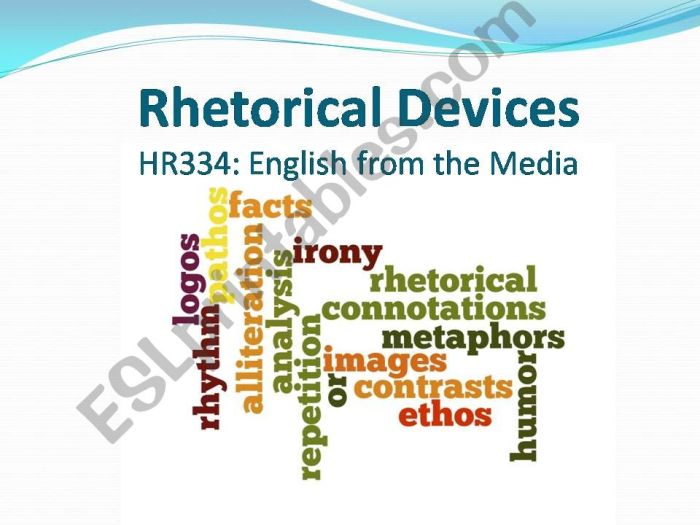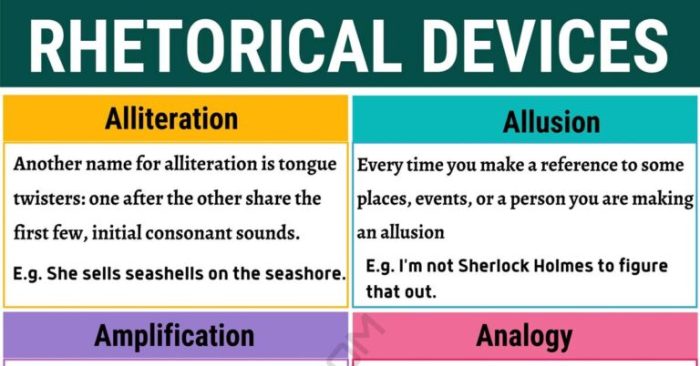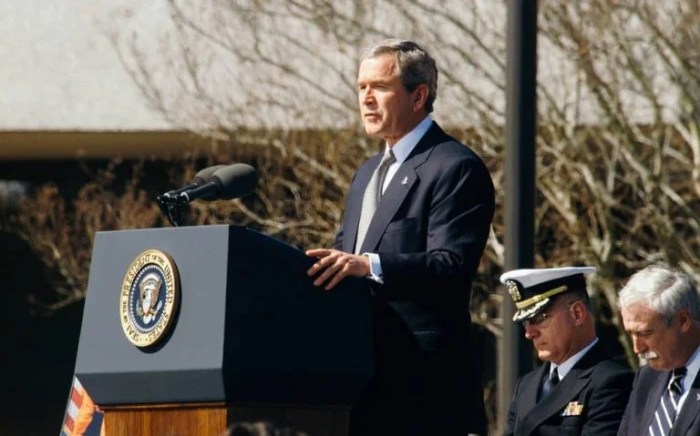Rhetorical devices in bush’s 9/11 speech – The rhetorical devices employed in President Bush’s 9/11 speech played a pivotal role in shaping its profound impact on the nation. This analysis delves into the intricacies of these devices, exploring their purpose, effectiveness, and legacy in shaping public opinion and policy.
The speech’s structure and organization, carefully crafted to enhance its impact, will also be examined. We will explore the use of transitions, repetition, and other organizational techniques that contributed to the speech’s effectiveness.
Rhetorical Devices in President Bush’s 9/11 Speech

Introduction
On September 11, 2001, President George W. Bush delivered a pivotal address to the nation in the wake of the terrorist attacks. His speech, known as the “9/11 Speech,” was a powerful and moving tribute to the victims and a rallying cry for unity and resolve in the face of adversity.
The speech employed a range of rhetorical devices that enhanced its impact and left a lasting legacy on American history.
Rhetorical Devices Used, Rhetorical devices in bush’s 9/11 speech
The speech utilized several rhetorical devices, including:
- Parallelism:Using similar grammatical structures to create a sense of rhythm and emphasis.
- Anaphora:Repeating words or phrases at the beginning of consecutive sentences.
- Metaphor:Comparing two unlike things to create a vivid image or convey a deeper meaning.
- Personification:Giving human qualities to non-human things.
- Hyperbole:Exaggeration for emphasis or effect.
Analysis of Specific Rhetorical Devices
Parallelism
Bush used parallelism throughout the speech, particularly in the following passage:
We will not waver; we will not tire; we will not falter; and we will not fail.
This use of parallelism creates a sense of momentum and determination, emphasizing the nation’s unwavering resolve in the face of adversity.
Anaphora
Anaphora is also used extensively in the speech, such as in the following passage:
Freedom itself was attacked this morning by a faceless coward… Freedom itself came under attack.
By repeating the phrase “freedom itself,” Bush reinforces the idea that the attacks were an assault on the very essence of American values.
Metaphor
Bush employs metaphors throughout the speech, such as the following:
The terrorists have attacked us because we’re a beacon of freedom, and our beacon still shines.
This metaphor compares America to a beacon of freedom, conveying the idea that the attacks were an attempt to extinguish the light of liberty.
Key Questions Answered: Rhetorical Devices In Bush’s 9/11 Speech
What was the primary purpose of President Bush’s 9/11 speech?
To unite the nation, condemn the attacks, and Artikel the administration’s response.
How did the use of rhetorical devices contribute to the speech’s impact?
By evoking emotions, establishing credibility, and reinforcing the speaker’s message.

